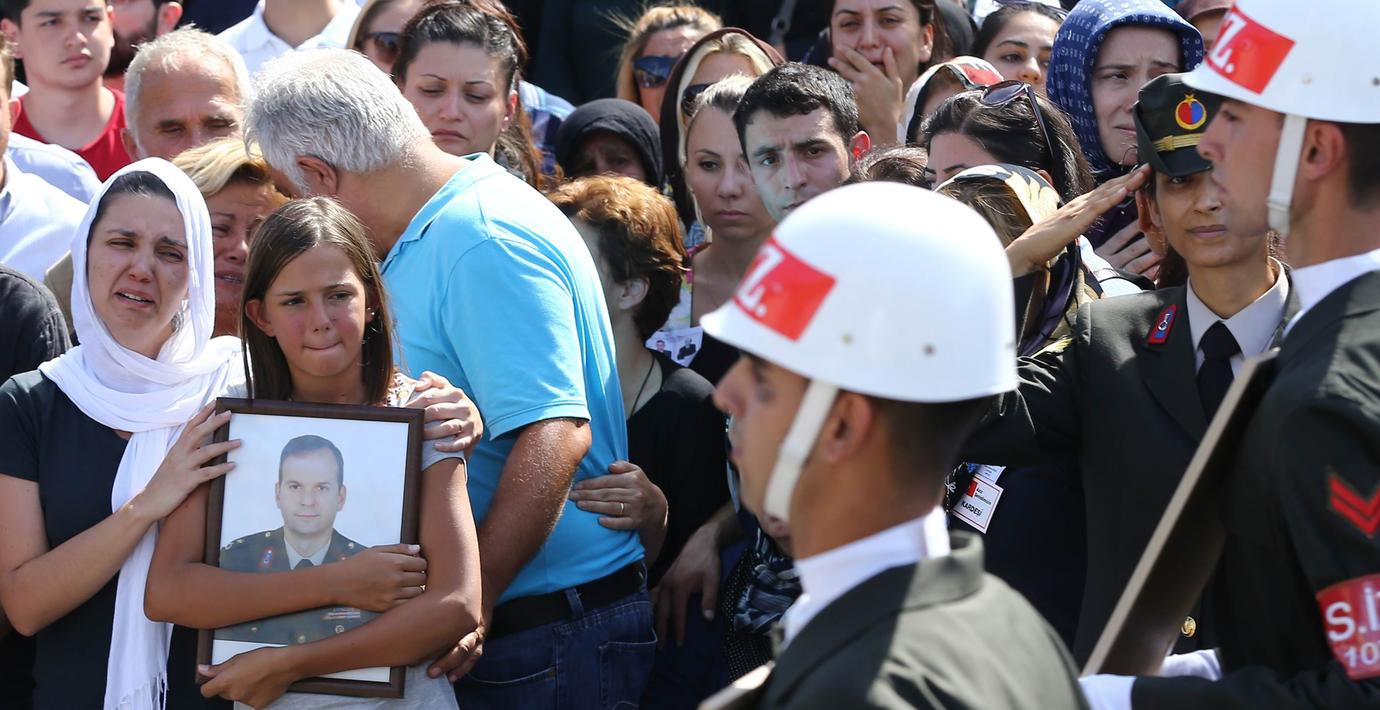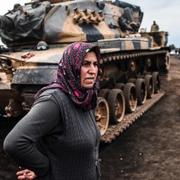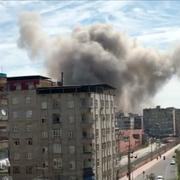
UD avråder från resor till flera provinser i Turkiet
Utrikesdepartementet avråder nu svenskar från icke nödvändiga resor till ytterligare fem provinser i östra Turkiet: Agri, Bingöl, Diyarbakir, Igdir och Tunceli.
– Det är med anledning av säkerhetsläget, säger Anna Ekberg, presskommunikatör vid UD, till TT.
Sedan tidigare avråder UD från alla resor till bland annat de delar i Turkiet som ligger inom tio kilometers avstånd från den syriska gränsen.
bakgrund
Konflikten mellan Turkiet och PKK
Wikipedia (en)
The Turkey–PKK conflict[note] is an armed conflict between the Republic of Turkey and various Kurdish insurgent groups, which have demanded separation from Turkey to create an independent Kurdistan, or to have autonomy and greater political and cultural rights for Kurds inside the Republic of Turkey. The main rebel group is the Kurdistan Workers' Party or PKK (Kurdish: Partiya Karkerên Kurdistan), which is considered a terrorist organisation by Turkey, the United States, and NATO. The European Union Court of First Instance has reviewed and removed its status as terrorist organisation on 3. April 2008. Although insurgents have carried out attacks in many regions of Turkey, the insurgency is mainly in southeastern Turkey. The PKK's military presence in Iraq's Kurdistan Region, from which it launches attacks on Turkey, has resulted in the Turkish military carrying out frequent ground incursions and air and artillery strikes in the region, because the Kurdistan Regional Government claims it does not have sufficient military forces to prevent the PKK from operating. The conflict has particularly affected Turkey's tourism industry and has cost the Economy of Turkey an estimated 300 to 450 billion dollars.
Since the PKK was founded on 27 November 1978 it has been involved in armed clashes with Turkish security forces. The full-scale insurgency, however, did not begin until 15 August 1984, when the PKK announced a Kurdish uprising. The first insurgency lasted until 1 September 1999, when the PKK declared a unilateral cease-fire. The armed conflict was later resumed on 1 June 2004, when the PKK declared an end to its cease-fire. Since summer 2011, the conflict has become increasingly violent with resumption of large-scale hostilities. In 2013 the Turkish Government and the jailed PKK leader Abdullah Öcalan started a new process regarding the Kurdish question. On 21 March 2013, Öcalan announced the end of armed struggle and a ceasefire with peace talks. On July 25, 2015, The PKK finally cancelled their 2013 ceasefire after a year of tension due to various events when the Turks bombed their positions in Iraq, in the midst of their defense against ISIS.
In 1994 the PKK was estimated to have between 10,000 and 15,000 fighters, 5,000 to 6,000 of which inside Turkey (the rest in neighbouring countries) In 2004 the Turkish government estimated the amount of PKK fighters at approximately 4,000 to 5,000, of whom 3,000 to 3,500 were located in northern Iraq. By 2007 the number was said to have increased to more than 7,000. The PKK's leader, Murat Karayılan, claimed the group had between 7,000 and 8,000 fighters, 30 to 40% were in Iraq, and the rest in Turkey. High estimates put the number of active PKK fighters at 10,000.
Turkiet
Omni är politiskt obundna och oberoende. Vi strävar efter att ge fler perspektiv på nyheterna. Har du frågor eller synpunkter kring vår rapportering? Kontakta redaktionen



